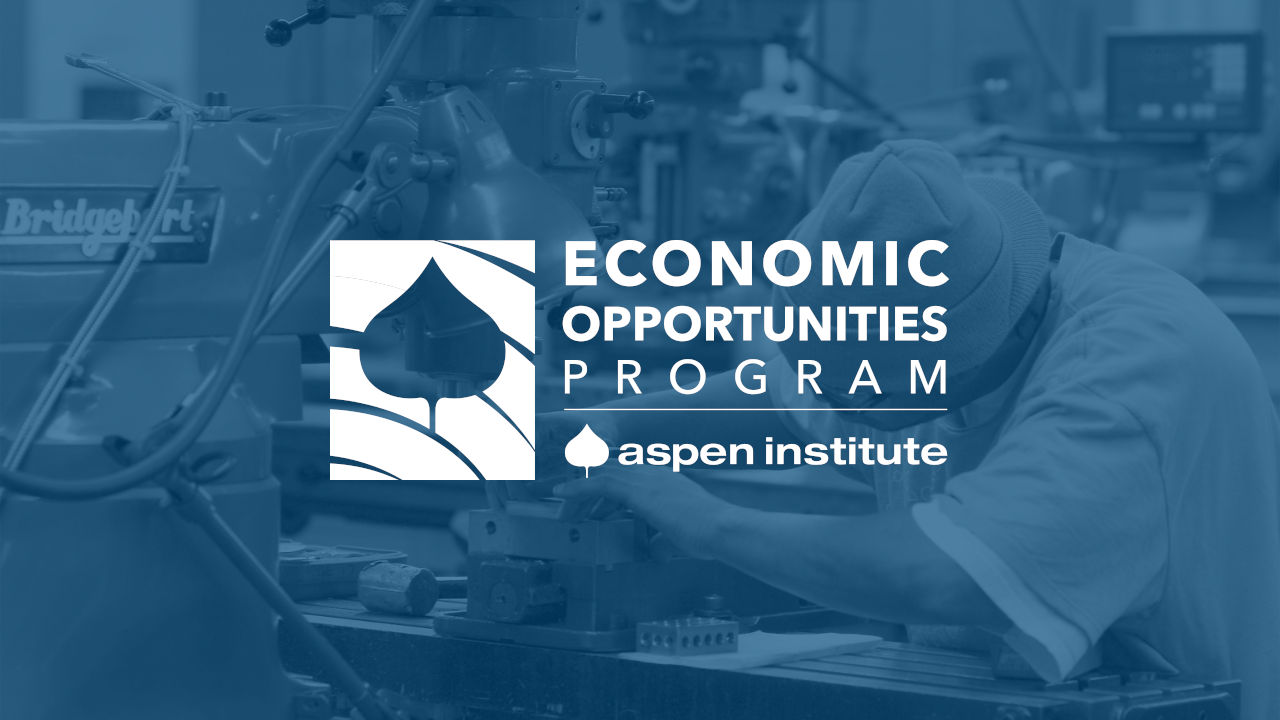Job Quality Newsletter — Getting Started with Job Quality – The Aspen Institute


Job quality is a cornerstone of a thriving economy and a just society. Still, too many workers across the US continue to face the challenges of low wages, unsafe conditions, and unstable employment. The conversation about what makes a “good job” is shifting, and there is growing recognition that high-quality jobs are essential not only for individuals, but also for the broader economy. And this understanding creates a new openness to rethinking what work can and should be and to different ideas about how to build better work.
To that end, we recently revamped our Job Quality Center of Excellence to make its resources even more accessible to leaders across sectors and industries. Among the resources available is our topic guide on Job Quality Frameworks — a starting point for those newer to job quality, which showcases the different but overlapping approaches organizations have taken to defining job quality — as well as a range of new materials that explore how job design, workforce development strategies, and operational choices can all contribute to better jobs and better outcomes for both workers and businesses.
In this issue, you’ll find a variety of new resources to explore, including our issue brief on the history and current trends in job design, our new tool on small business job quality advising for CDFIs, a guide on how to build job quality into your workforce development approach, a case study from Cincinnati’s Sunrise Treatment Center that illustrates how improving job quality benefitted both employees and patients, and a clip from our conversation with Zeynep Ton on how operational decisions can strengthen both job quality and business performance. We encourage you to explore these resources and consider how they can inform your work.
This issue brief by my colleague Matt Helmer reviews the history and current state of job design, highlights the benefits workers and businesses receive when jobs are designed with worker well-being in mind, and notes emerging issues and practices in job design related to technology, work-based learning, and employee ownership. We hope this brief sparks new thinking and conversations about how we can all encourage and contribute to designing work and workplaces that promote quality jobs.
Developed as part of our Shared Success demonstration, this tool — which I had the privilege of coauthoring with my colleagues Bryn Morgan and Rossana Espinoza — offers guidance for business advisors at CDFIs on how to have conversations with small business owners on job quality improvements. It centers business value and includes a variety of information and resources to assist business owners in addressing poor job quality.
Additional reading: Topic Guide: Small Business Job Quality Advising
In this tool, the San Diego Workforce Partnership provides a job quality framework and a list of job quality indicators. Although designed for workforce practitioners, it can also be informative for others interested in strategies to improve job quality, including policymakers and economic development professionals.
Improving job quality not only transforms workers’ lives, but it also benefits businesses’ performance and bottom lines. This 2021 brief, by our former colleagues Mark Popovich and Yoorie Chang, explores how Cincinnati’s Sunrise Treatment Center saw sustained growth and improvement in both capacity and caregiving by ensuring that the focus of the organization was explicitly two-fold: to provide the highest quality treatment for patients with substance abuse issues and mental illness, and to offer a great place to work for employees.
In this clip, Zeynep Ton, professor at MIT Sloan School of Management and co-founder and president of the Good Jobs Institute, delves into the impact of operational choices on both job quality and business success. Drawing from the powerful examples of thriving companies like Costco, QuikTrip, and Trader Joe’s, she highlights the connection between strategic, operational decisions and positive outcomes for customers, employees, and investors. This clip comes from our May 2023 book talk, “The Case for Good Jobs: How Great Companies Bring Dignity, Pay, and Meaning to Everyone’s Work.”
The Economic Opportunities Program advances strategies, policies, and ideas to help low- and moderate-income people thrive in a changing economy. Follow us on social media and join our mailing list to stay up-to-date on publications, blog posts, events, and other announcements.

Many people use their phones to handle everyday tasks, from scheduling appointments to staying connected with family. Budgeting apps are...

Parent PLUS borrowing will be capped beginning July 1, 2026: up to $20,000 per student per year and $65,000 lifetime...

Advisors affiliated with independent broker/dealers often assume that “independence” is a destination rather than a spectrum. Yet, when frustration creeps...